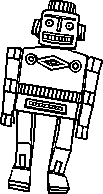Liked: Scratch is a big deal | Bryan Braun – Frontend Developer
Interesting take on Scratch by a Developer & parent.
This recent growth has caused Scratch to break into the Tiobe index’s top 20 most popular programming languages. At the time of this post (July 2022) it ranks 21st, above Typescript, Rust, Julia, and other important languages. The Tiobe index is imperfect but there’s clearly something happening here.
Bryan points to some
It’s pretty impressive how ambitious the projects get. Scratchers often build copycats of “real” games like Cut the Rope, Super Mario Bros, and Terraria. Features like cloud variables allow them to make online multiplayer games, like Taco Burp (popular in my house)
This is quite a different degree of scratching than I’ve seen in my and other classroom recently.
The REST APIs enable third-party tooling like Turbowarp—a parallel site that can run Scratch projects 20x faster.
A bit clicking leads to Paper Minecraft v11.6 (Minecraft 2D) on Scratch!
A lot of food for thought, I never spend much time with scratch beyond preparing and experimenting with the most basic of things. I am not sure it is a rabbit hope I want to peer down for long. I think the simple types of things we do in class are enough for most of the pupils (along with micro:bits, lego and other coding). The advanced projects might be useful to point some of the more confident pupils at.

 Someone has archived the
Someone has archived the 